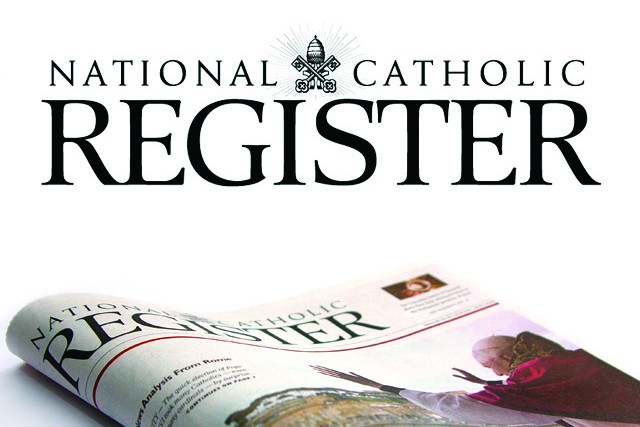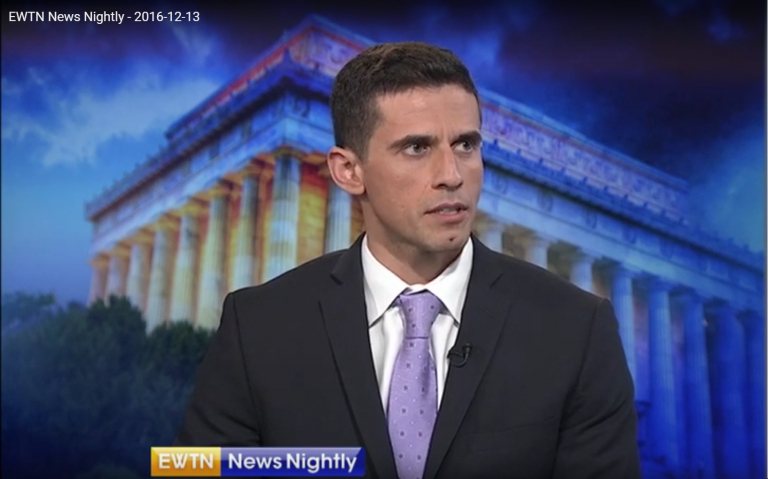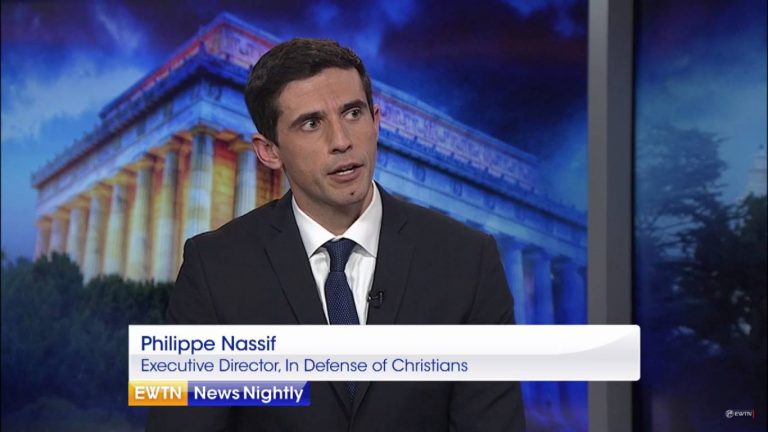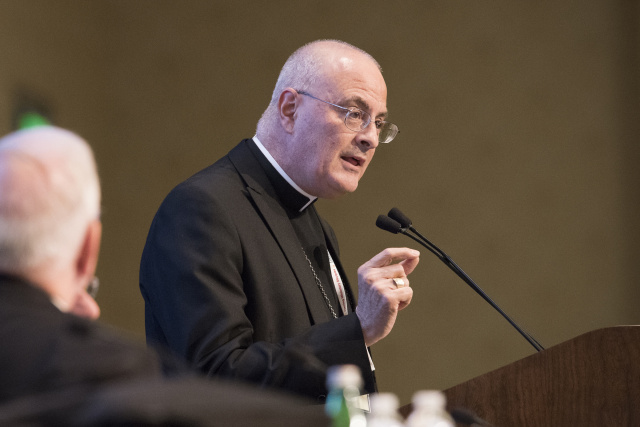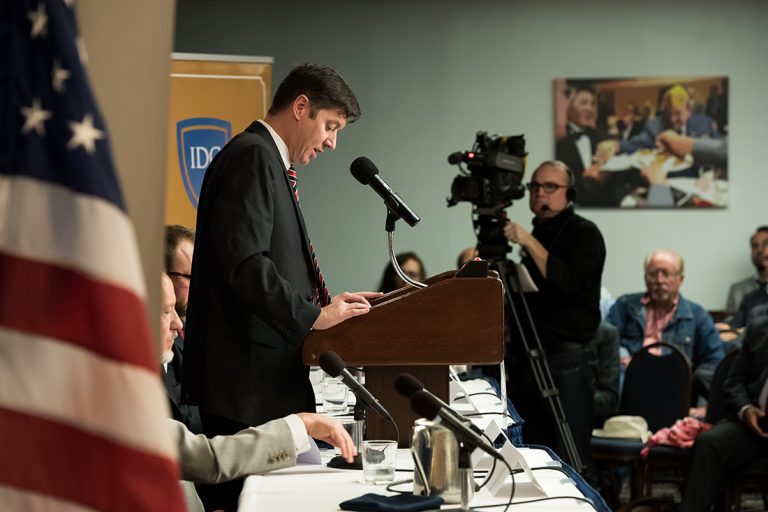In the context of of Lebanese Prime Minister Saad Hariri’s resignation, Pope Francis and Maronite Patriarch Bechara Rai are trying to keep the peace for the Middle East’s best model for future stability.
Twenty years ago, when St. John Paul II arrived in Lebanon, he proclaimed the country’s important “historical mission” was to show the world how “different faiths can live together in peace, brotherhood and cooperation.”
The Holy Father declared that “Lebanon is more than a country — it is a message.”
But today, Lebanon is increasingly in the crosshairs of an escalating regional proxy war between Saudi Arabia and Iran. The highest levels of leadership in the Catholic Church are acting to save Lebanon from a war that could not only devastate this historic Christian homeland, but also deal a fatal blow to the survival of Christianity in the Middle East and plunge the region into a long-term sectarian war.
During Sunday’s Angelus message, Pope Francis delivered an impassioned appeal for the international community to do everything possible to secure peace in the Middle East, asking the faithful to “pray for the stability of [Lebanon], so that it can continue to be a ‘messenger’ of respect and coexistence for the entire region and for the whole world.”
Tensions in Lebanon rose with the sudden and unexpected resignation of Saad Hariri, the country’s Sunni prime minister, who read a televised prepared speech in Saudi Arabia on Nov. 4 saying he feared an assassination plot against him and blamed Iran and its Lebanese Shiite proxy Hezbollah for Lebanon and the region’s problems.
The speech and Hariri’s apparent detention in Saudi Arabia actually united the various factions in Lebanon, which agreed that Hariri’s resignation was not in Lebanon’s interests. After international pressure on the Saudis from the United States, France and other Western governments, Hariri finally returned to Lebanon, and on Nov. 22, announced he had put his resignation on hold, at the request of President Michel Aoun, in the interests of Lebanon.
Philippe Nassif, executive director of In Defense of Christians, a Washington-based lobby that advocates for the interests of Middle-Eastern Christians, told the Register that the Saudis were attempting to collapse Hariri’s national unity government, which included Hezbollah’s political wing, in a “reckless” bid to even the regional chess game the Saudis have been losing against Shiite-dominated Iran.
Nassif said Lebanon’s survival is critical to the survival of Christianity in the Middle East. Although Egypt has the largest population of Middle-East Christians in terms of numbers, Lebanon is the only country where a Christian is the head of state, and both Muslims, Christians and other religious communities enjoy full religious freedom and civic equality.
Lebanon is a secular state where power is shared by the different major confessional religions: Christians account for 41% of the population, with Sunni and Shiite Muslims both at 27% and the rest being Druze (6%) and other minorities. Under the constitution, Lebanon’s president is Maronite Catholic, the prime minister is Sunni, and the speaker of Parliament is Shiite.
Lebanon is a unique country in the Middle East, as the majority of Christians are actually Catholic due to the fact that the largest church, the Maronite Catholic Church, never broke from communion with the Bishop of Rome.
The country has also provided a refuge to Christians fleeing the annihilation of Syria’s protracted war and genocide in Iraq. But Lebanon’s political and social cohesion is straining badly with the absorption of more than a million Syrian refugees in this country of 4.5 million.
Saudi Setbacks
Nassif explained the Saudis have suffered a string of serious reverses in their regional battle with Iran for power and influence. Saudi Arabia’s war on Yemen’s Iranian-backed Houthi rebels has only led to catastrophic losses of civilian life due to mass starvation, Iraq’s government has fallen under the political aegis of Iran, and its Sunni militant proxies failed to oust President Bashar Assad from Syria — due again in part to Iran’s military and economic support and Iran’s Lebanese proxy, Hezbollah. The Shiite party has the only Lebanese militia that did not disarm following the conclusion of Lebanon’s 15-year civil war in 1990 and is assumed to have as many armed fighters as Lebanon’s army. However, as part of a delicate national compromise, Hezbollah forms part of Lebanon’s government.
The Saudis, who have been alarmed that Hezbollah’s activities have extended from Syria into Yemen, have succeeded in getting the Arab League to condemn Hezbollah as a terrorist organization. And in comments published Nov. 23 by The New York Times, Saudi Crown Prince Mohammed bin Salman, who is in line to become the kingdom’s next ruler, characterized Iranian supreme leader Ayatollah Ali Khamenei as “the new Hitler of the Middle East.”
Nassif said that both Saudi Arabia and Iran have played out their rivalry in Lebanon in “a more peaceful way compared to other countries.” Both recognize that if Lebanon ends up in a war again, it could lead to a conflagration that would spin out of their control.
“If something happens in Lebanon, everybody loses,” he said, especially the Lebanese, who are determined to avoid war because they already “know what happens when they start shooting at each other.”
The U.S. government has expressed support for Lebanon’s sovereignty in recent statements from Secretary of State Rex Tillerson — a tacit message to its regional allies, such as Israel and Saudi Arabia, that the U.S. regards Lebanon’s integrity as a strategic interest. But Nassif said the U.S. government needed to de-escalate the tensions to prevent “one stupid thing” that would make the region explode, lead to a massive exodus of refugees, and prove fatal for the long-term endurance of Christianity in the Middle East.
Patriarch and Prophet of Peace
Amid these heightened tensions took place an event of enormous historic importance: Maronite Catholic Patriarch and Cardinal Bechara Boutros Rai made an official visit to Riyadh Nov. 14 at the behest of Prince Mohammed bin Salman.
Bishop Gregory Mansour, head of the Eparchy of St. Maron in Brooklyn, New York, told the Register that the patriarch’s visit showed his commitment to Pope Francis’ vision of building bridges of peace through personal encounter and dialogue. In Saudi Arabia, public worship of any religion other than the Wahhabi version of Islam — public or private — is forbidden.
“For most of us, this visit was surprising, but welcome,” Bishop Mansour said. “They invited the patriarch, who is a symbol of two things: One is he’s a symbol of Christians in the Middle East, and, two, he was a symbol of the country of Lebanon … which represents Christian-Muslim conviviality.”
Catholic News Service reported Church officials in Lebanon said Cardinal Rai would stress with the Saudis the need for Lebanon to remain neutral in the regional conflicts, that its independent sovereignty and stability be respected, and that the country remain “the land of cultural and religious pluralism and dialogue between Christianity and Islam.”
Bishop Mansour told the Register he hoped the Saudis would not just listen to Cardinal Rai’s message about the Christians of Lebanon, but also the message about the importance of Christianity to the Middle East, including the “millions of Christians who live in Saudi Arabia.”
Saudi Arabia is estimated to have potentially 2 million Christians living and working there, most of whom are Latin-rite Catholics due to a large number of Filipino migrant workers. Conversion from Islam is punishable by death, although one study estimated that 60,000 Christians in Saudi Arabia may be Muslim converts.
Bishop Mansour said Christians in the Middle East are looking to the survival of Lebanon, as they hope that the region does have a future of peace and pluralism, guarded by secular states, for its ethno-religious mosaic.
When Cardinal Rai left Saudi Arabia, he traveled immediately to Rome, raising the prospect that he would be involving Pope Francis. Although the Holy See does not have diplomatic relations with Saudi Arabia, the Vatican Press Office reported Pope Francis and Saudi Arabia’s foreign affairs minister, Adel bin Ahmed Al-Jubeir, had a personal meeting on Nov. 22, the day Hariri agreed to stay on as prime minister.
Avoiding War and Embargo
Habib Malik, a history and cultural studies professor at the Lebanese American University, based in Beirut and Byblos, told the Register that having Cardinal Rai officially invited to the Saudi kingdom, wearing his robes and Christian symbols, was “unprecedented” for a Catholic leader and planned before the tension regarding Hariri’s resignation began.
“That alone is important,” he said, adding that the Lebanese were hoping that Cardinal Rai’s visit would help soften the situation between Saudi Arabia and Lebanon. A Saudi economic blockade, or expulsion of Lebanese working in the kingdom, Malik explained, would have devastated Lebanon’s delicate economy.
Malik said the crown prince is eager to trumpet his vision that Saudi Arabia will have a centrist Islam, with openness and dialogue, and that is the original context of the visit. At the same time, the Saudis also know that Cardinal Rai is very critical of Hezbollah, but if they thought they could exploit divisions in Lebanon, they failed, because “the cardinal is squarely within the national unity consensus that has emerged.”
Right now, Hariri seems to have received indications that Hezbollah will accommodate his need to distance Lebanon from the regional conflicts and keep the country neutral as much as possible. Malik said the coming days will show whether Harari can live with this “new tweaked deal” or follow through with his plan to resign.
Overall, Malik said, the Saudis have failed to score any major victories, and the “Iranian-Hezbollah-Assad axis supported by Russia” has the upper hand in the region.
“The scheme to blow up Lebanon that was intended by all these Saudi moves the past 20 days has backfired royally upon the desert royals,” Malik said. Lebanon stayed united and gained wide international support for stability, Hezbollah toned down the triumphalism for the language of compromise, and Hariri returned to Beirut with a hero’s welcome.
“Lebanon, for now, has truly dodged a bullet.”

